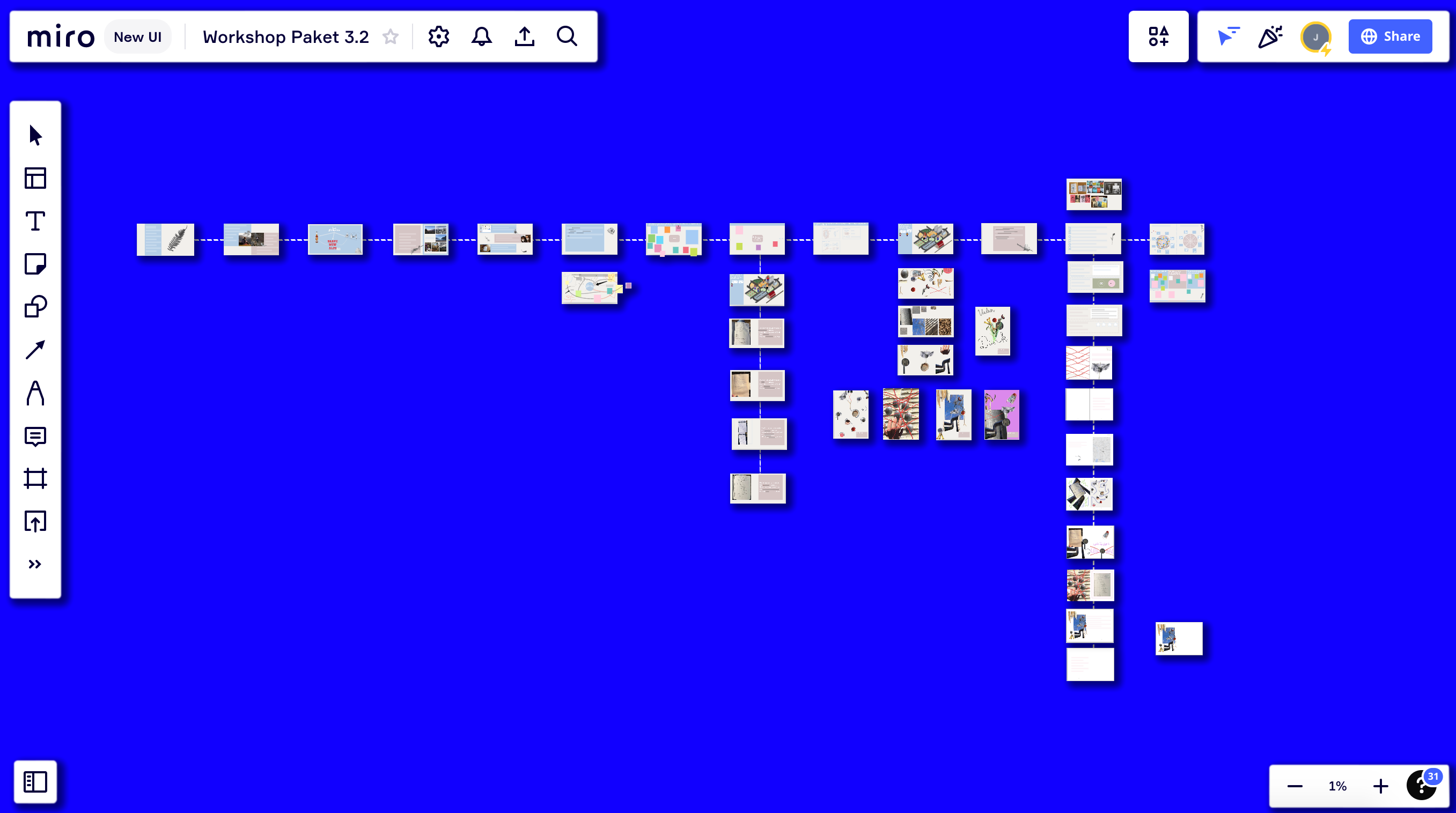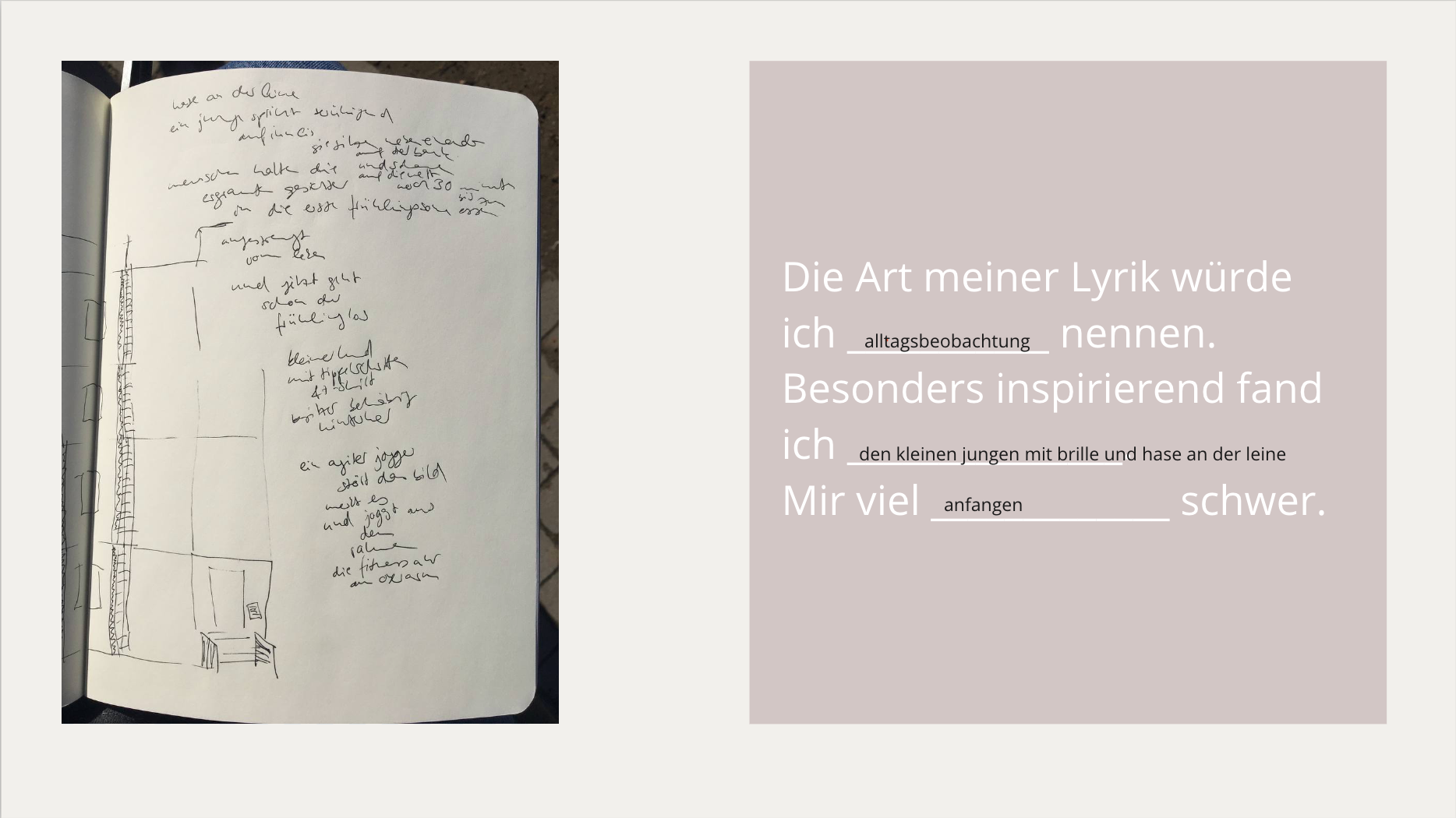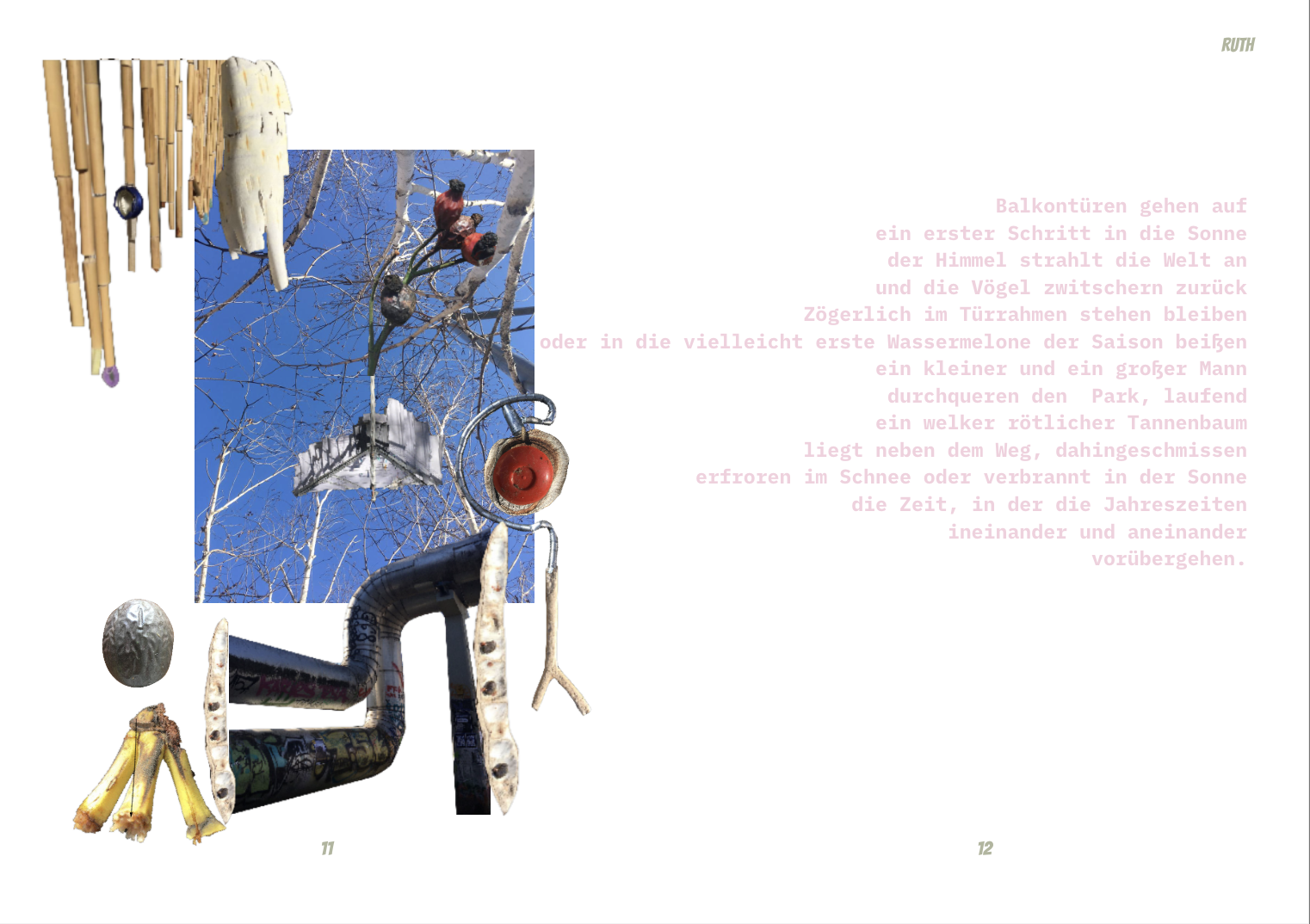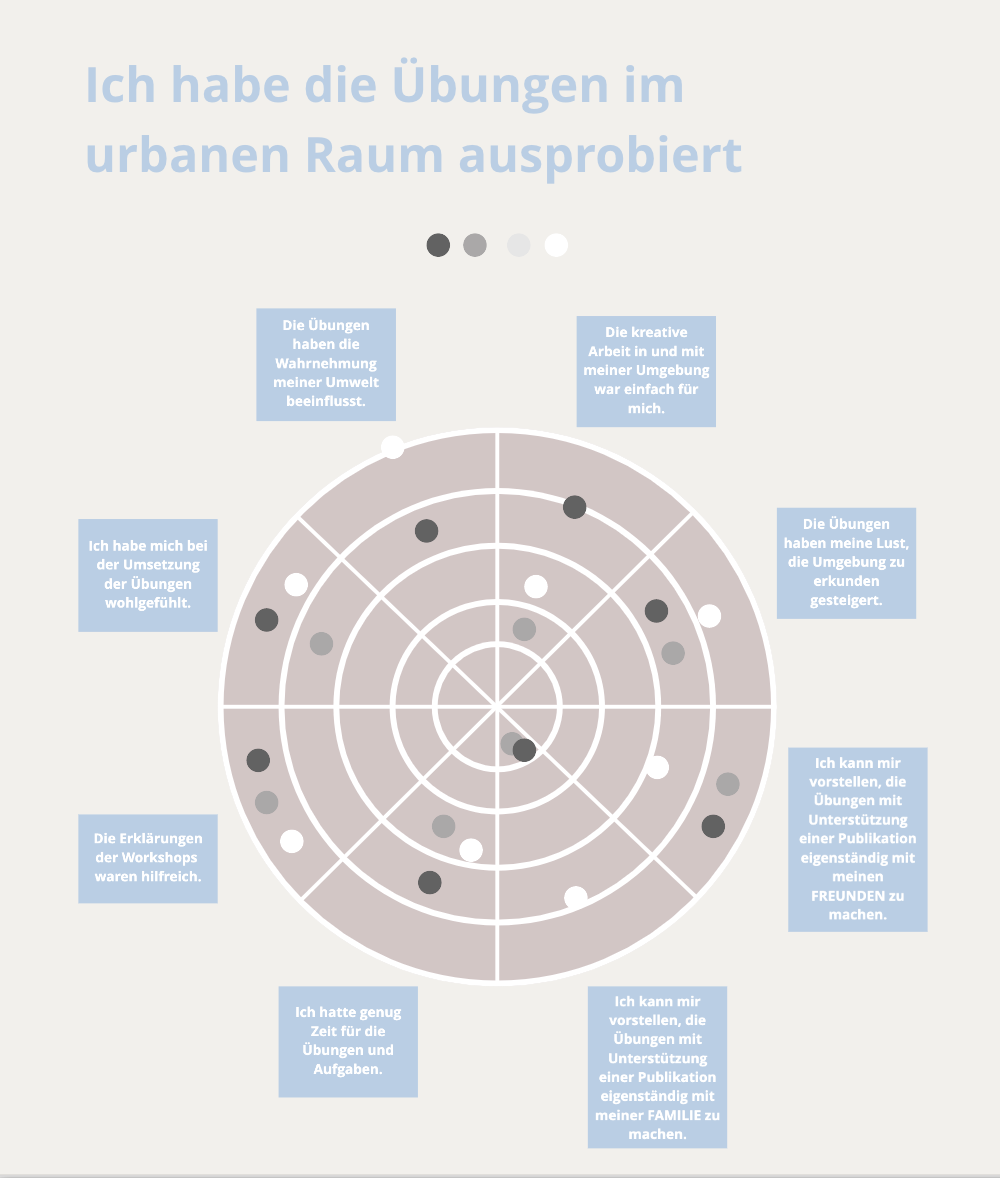

The digital workshops where part of the testing phase of our workshop concept "Attention Recalibration". Originally, this stage was supposed to be in-person testing, however the winter lockdown of 2020/2021 did not allow for any in-person events to be held in Italy, where I was working at the time.
This however could be considered a happy accident, since it lead us to design the workshops in a way, so that they could be executed even without our instruction.
In total we held three digital sessions with two workshops(1) each in groups of 4 to 6 participants. We connected with the participants via zoom and shared a miro workspace(2), which was prepared like a kind of mad libs, with a mini workspace for each participant and clear instructions of how to use the mini workspace.
After a short introduction to our project, we introduced the first workshop. Then the participants would go out into their respective territories (of the same city), to experience and document, what they experienced while following the instructions of the workshop. Afterwards we would meet again in our online workspace(3) to show and tell, explain, understand and compare each participants findings. After this discussion there would be a creative white board session to translate and manifest the subjective sensoric experiences. Afterwards followed the second workshop with the same procedure. The last section was a feedback loop from the participants, so that we could edit the workshops accordingly.
I enjoyed the process of directly trying out our prototype workshops with different consumer groups and improving our project through iterations. In this process I learned how to design effective online workshops and utilizing digital tools as well as creating a process that is engaging and entertaining while still meeting the set goal.
(1) The workshops utilized and introduced different methods of psychogeographic surveying of a habitat. Through creative expression and group discussions the participants get a collective learning experience not only about the habitat, but also about their perspective and the perspective of others.
(2) The construction of an intuitive workspace was essential to keep participants engaged. Utilizing the tools at our disposal without overwhelming participants who where less experienced with remote work tools was a fine balance. We felt like we had achieved this when a participant with no online workspace experience whatsoever gave us the feedback that she did not feel at a disatvantage to her younger, more experienced group members.
(3) This mix of virtual workspace and real experiences that were retrospectively shared with the group worked very well and counteracted the "zoom fatigue", most people experienced during the pandemic.



